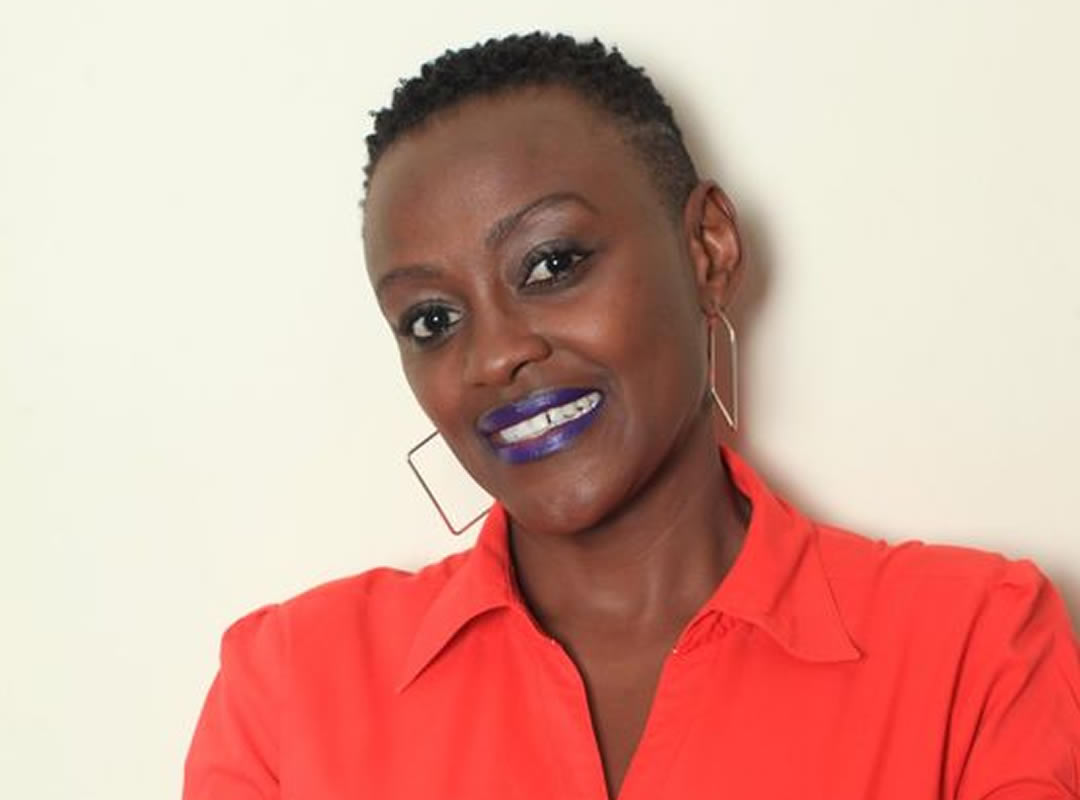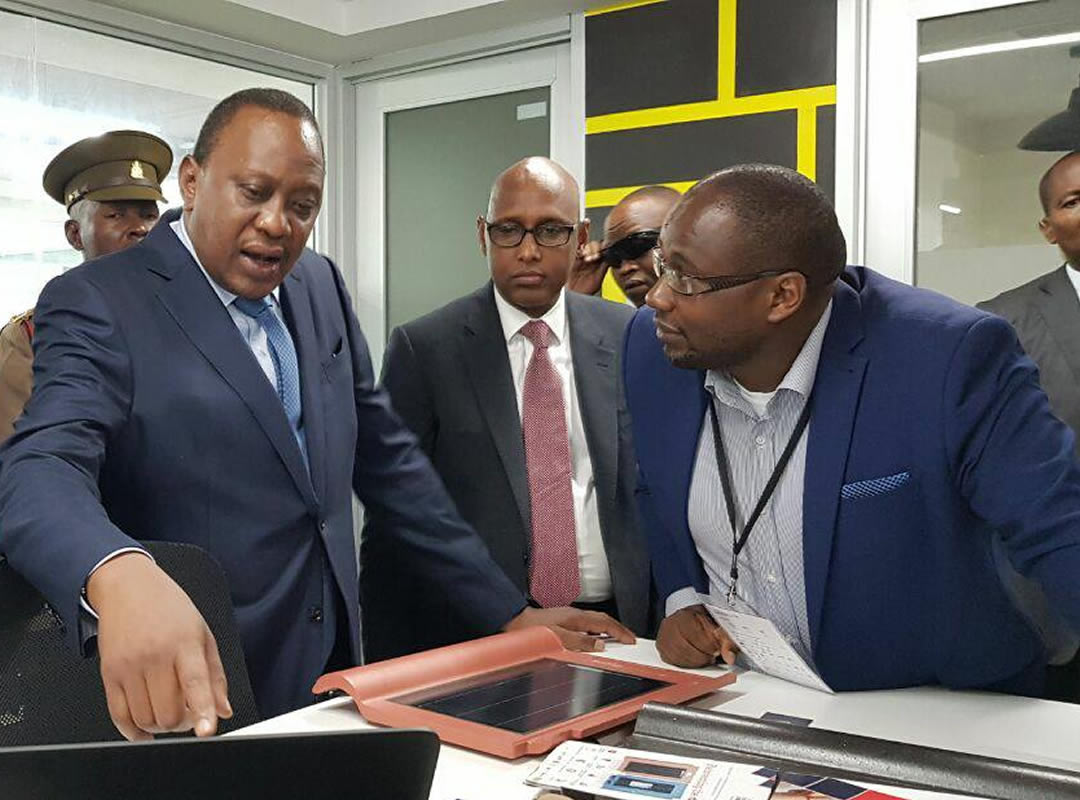Every year, a group of talented entrepreneurs from all over the world comes to Washington DC to participate in the ‘Challenge Festival,’ a global competition organized by the technology incubator 1776, to scout the best new ideas in education, health, transportation, energy and sustainability.
Charity Wanjiku was among them. Dressed with a confident smile, she came from Nairobi to represent Strauss Energy – the clean energy company she founded with her brother Tony Nyagah – and explain their new method to make solar power more affordable and accessible to hundreds of people at the bottom of the pyramid.
Supported by the Kenya Climate Innovation Center, Charity and Tony have developed energy-producing solar cells that can be easily integrated into functional parts of a construction, such as walls, windows and roofs. Moreover, unlike traditional installations, their system comes with a special meter that can feed unused electricity back to the national grid, generating precious income for the household.
Their simple idea has the potential to change the way millions of people meet their energy needs. In Africa alone, about US$17 billion are spent each year on fuel-based lighting sources like kerosene. While consuming a large share of the average household income, fuel-based lighting has severe consequences on the environment and, because of its toxic fumes, ultimately on the health of people.
With her confident pitch, Charity showed to a room full of investors, entrepreneurs, and clean-tech experts that the solution might be more simple that we though. We interviewed both Charity and Tony right after their experience at the Challenge Festival to learn more about their innovative idea, the support from the Kenya CIC, and the entrepreneurial journey that took them from Nairobi to this international stage in Washington DC.

Q: You just participated in this prestigious pitching competition. How was the experience on stage? Were you nervous?
Charity – It was a very exciting experience and yes, I was a little nervous. Luckily, the day before the pitch we had a coaching session that helped us calm down and find the right spirit. They called us on stage to pitch by alphabetical order – we went almost at the end with number 18. From the backstage, I listened to 17 participants before it was my turn. Then, I took a deep breath, I stepped on the ‘X’ and I started pitching. And to be honest, I had a lot of fun! For those two minutes on stage I think I really got into my element; I gave it all and I brought the house down. I was prepared, I answered all the questions, and I even corrected one of the judges!
Q: Other than the monetary prize, what do you think is the value of this kind of pitching competition for emerging entrepreneurs?
Charity – Exposure. Many of these initiatives let you compete and get exposure on an international platform. Right now, thanks to this pitch, hundreds of people around the world know about Strauss Energy, know who we are, where we are from and what’s our value proposition. There have been tweets from the US Chamber of Commerce, VC4Africa, the World Bank, etc.; the word is out and people are interested. And investors are listening too…we have already received a few calls and emails.
Q: Did you improvise or did you prepare a ‘special’ pitch for the occasion?
Charity – I knew it was mostly an American audience so I wanted to use my pitch to show how our solar tiles have great potential also here in the States. I introduced our business, moving gradually from a Kenyan to an international perspective. My closing statement summarizes very well our approach: ‘The sun that shines in Arizona and Florida is the same sun that shines in Africa.’ I think it worked well; it’s a catchy phrase that a lot people will remember.
Q: Tony, can you tell us more about your idea and the people you are reaching?
Tony – We have two business models. We have clients – mostly companies and organizations – that come to us and buy our solar systems paying the full price upfront. At the same time, since all our systems generate income by putting power back into the grid, we can also offer to low-income people the option to pay only a small price for the installation and pay the rest in installments. The solar systems come with a special meter that feeds electricity back to the national grid. This power is quantified in real time and the value is credited to their account. The periodic payments for any excess or unused energy produced are then used to pay back the systems. The idea is that everybody who needs a roof should be able to afford it, while also providing electricity for someone else who don’t have it.
Q: When did your idea become a real business?
Tony – Given the growing local interest – the demand for cheap and clean energy is booming in Kenya and Africa at large – I decided to invest some time and money to turn a school project into a small side business that I could cultivate in my free time. After a few months, I found out about the Kenya CIC and I started working with them. The business started picking up, so much so that I couldn’t keep my full time job and Strauss Energy was finally a reality. Currently, my sister Charity and I are both working full time on the project. And we also have three engineers part time. We’re growing very fast!
Q: How do you think the Kenya CIC could help you scale up?
Tony – I can see four areas in which the Kenya CIC can support us. First of all, until we have our headquarters, we need the office space and the meeting rooms provided by the center. Then it’s also crucial to us to keep networking and build connections through the Center and the Strathmore University – as a matter of fact, our very first customer came through the CIC. Thirdly, we need financial support to build our show house – a one-bedroom unit that will recreate the experience of a regular house powered by our system. And last but not least, the seed funds that will allow us to help many more with our services.
Q: What is your advice to an emerging entrepreneur who wants to turn an idea into a successful business?
Tony – I think that any new entrepreneur should have a very critical friend who can provide a good reality check when it is needed. You have to believe in your idea, after all, you’re the biggest advocate of that idea; at the same time however you have to keep in mind that no matter how original that idea is, it has also to be sustainable and profitable.
Charity – Startups start with dreamers and dreamers have amazing ideas but usually very poor managerial skills. I would suggest to every dreamer out there to go find a good manager, someone who can help them implement their vision, slapping them back to reality when it’s necessary. Our company has been successful so far because we have this balance; my brother Tony is the dreamer and I’m the project manager. You have to work with both sides: on the one hand, having a dream is a fantastic thing but if you don’t know how to implement it, it will always remain just a dream; on the other hand, a project Gantt can be pretty empty without a vision behind it!
Read more stories




